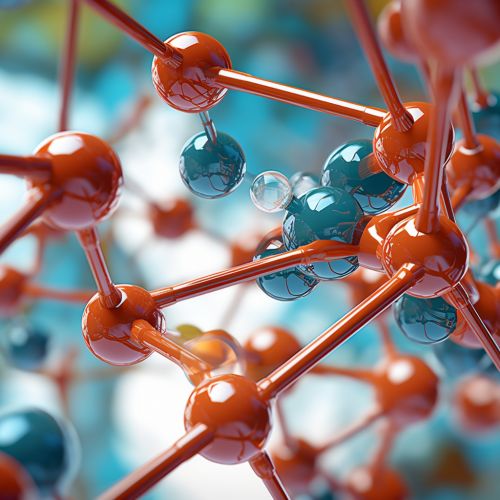Epinephrine
Overview
Epinephrine, also known as adrenaline, is a hormone and neurotransmitter produced by the adrenal glands in response to stress. It plays a crucial role in the body's fight-or-flight response, preparing the body for action by increasing heart rate, blood pressure, and glucose levels.


Biochemistry
Epinephrine is a catecholamine, a type of monoamine derived from the amino acids phenylalanine and tyrosine. It is synthesized in the adrenal medulla from the precursor molecule dopamine through a series of enzymatic reactions. The final step in this process is catalyzed by the enzyme phenylethanolamine N-methyltransferase (PNMT), which transfers a methyl group from S-adenosylmethionine to norepinephrine, producing epinephrine.
Physiological Effects
Epinephrine exerts its effects by binding to and activating adrenergic receptors, which are found on the surface of many different cell types throughout the body. There are several different types of adrenergic receptors, each of which has a different effect when activated by epinephrine.
Cardiovascular System
In the cardiovascular system, epinephrine acts primarily on beta-1 adrenergic receptors in the heart, causing an increase in heart rate and contractility. This results in increased cardiac output, delivering more oxygen and nutrients to the body's tissues. Epinephrine also acts on alpha-1 adrenergic receptors in the blood vessels, causing vasoconstriction and increasing blood pressure.
Respiratory System
In the respiratory system, epinephrine acts on beta-2 adrenergic receptors in the bronchial smooth muscle, causing bronchodilation. This allows for increased airflow into and out of the lungs, improving oxygenation of the blood.
Metabolic Effects
Epinephrine also has significant metabolic effects. It acts on beta-2 adrenergic receptors in the liver and skeletal muscle, stimulating glycogenolysis and increasing blood glucose levels. This provides a rapid source of energy for the body during times of stress.
Clinical Uses
Epinephrine has a number of clinical uses, primarily due to its ability to rapidly reverse severe allergic reactions, known as anaphylaxis. It is also used in emergency medicine to treat cardiac arrest, as it can increase coronary blood flow and improve the chances of successful resuscitation.
Side Effects and Contraindications
While epinephrine can be life-saving in certain situations, it also has the potential to cause serious side effects, particularly when used inappropriately. These can include arrhythmias, hypertension, and anxiety. Due to its potent cardiovascular effects, epinephrine should be used with caution in patients with heart disease.
